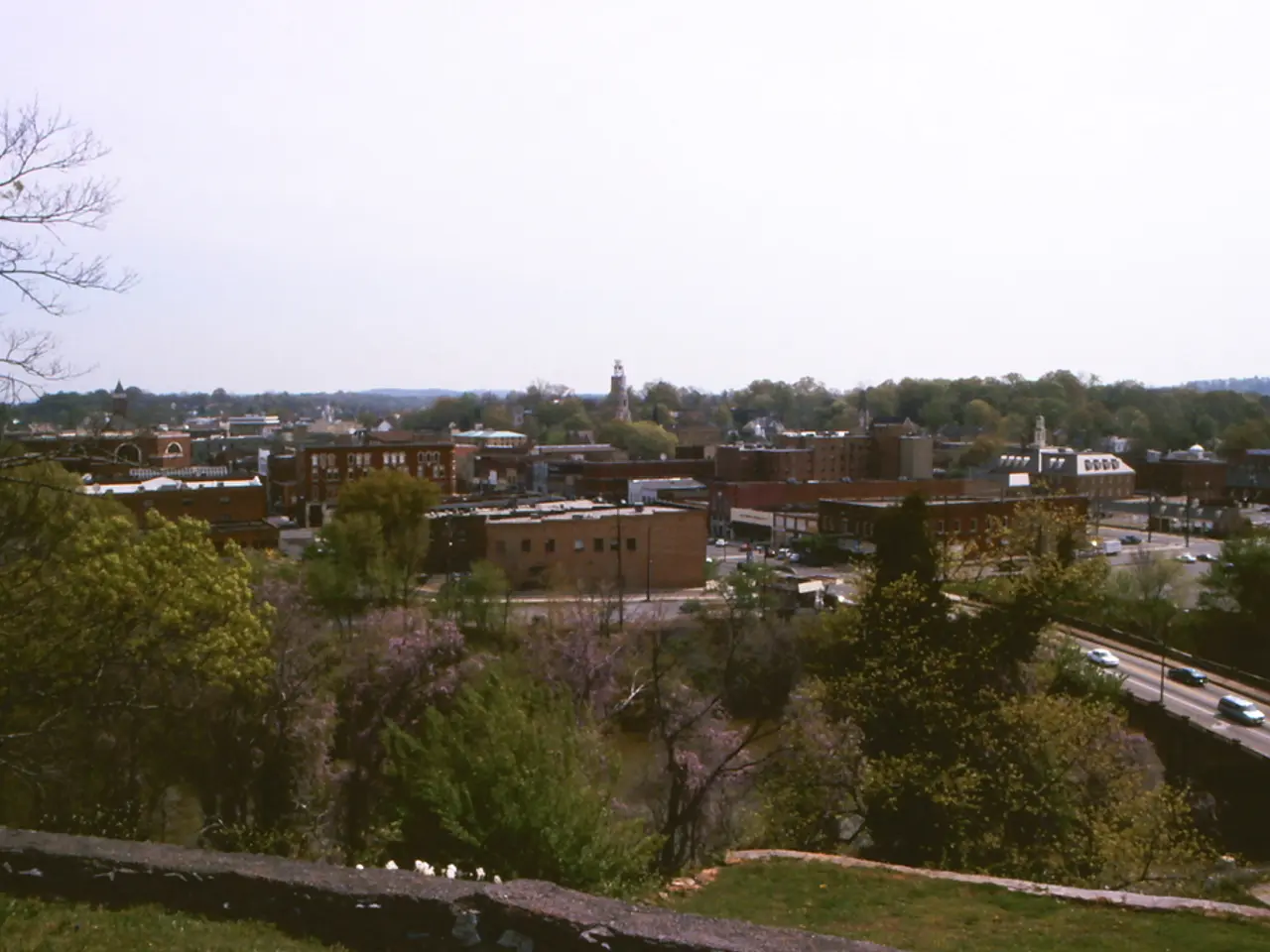Africans Constructing Metropolises of Tomorrow
==================================================================
In a world dominated by cities like Dubai, Singapore, and Los Angeles, Africa is making a bold statement with its cities of the future. The African continent is projected to have 14 mega-cities with more than 10 million people each in the next 30 years, marking one of the largest urban migrations in history [1].
This urban migration is transforming African cities, creating unique urban landscapes that blend traditional informal settlement dynamics with cutting-edge digital infrastructure. The result is a new breed of cities that are sustainable, resilient, and inclusive.
Take, for instance, Addis Ababa, Ethiopia. The city, which is growing at an unprecedented rate, is a testament to the unique characteristics of African urban development. Its population is expected to triple within five years, driven by rural-to-urban migration and natural growth [2].
The city's growth pattern and factors contributing to its success are different from those of global cities. In Addis Ababa, we see a city where spatial and morphological dynamics play a significant role. Studies using GIS and satellite imagery reveal varied urban forms with irregular and regular planning patterns influencing population density and transportation access [3].
The city's urban core-to-periphery transitions are unique, affecting development strategies. For example, the periphery of Addis Ababa is seeing a boom in informal settlements, while the city centre is undergoing a transformation with the construction of smart-city projects [2].
One such project is the Modderfontein New City in South Africa, which aims to house over 100,000 residents while generating thousands of jobs. It features AI research centres, smart transport, fibre infrastructure, and blockchain land registries [1].
Similarly, Menlyn Maine in South Africa is recognized as Africa's first "green city," incorporating AI-assisted energy systems, electric vehicle infrastructure, and waste-to-energy plants to reduce car usage and provide sustainable urban living [1].
The urbanization trend in Africa is not only reshaping the continent but also challenging traditional definitions of a modern city. Cities like Lagos, Nigeria, are growing at a rate of 77 people per hour, with Lagos projected to become a city of 100 million people [4].
This rapid urbanization is forcing a reconsideration of what makes a city modern. The uniquely African cities are forcing us to question our assumptions about urban development and to re-evaluate the growth and thriving of these cities.
The focus of this article shifts to Addis Ababa, Ethiopia, where we have had the opportunity to speak with entrepreneurs, writers, scholars, and artists. This article is produced in partnership with the Consortium of Humanities Centers and Institutes (CHCI), a global consortium of 270 humanities centres and institutes [5].
Together, these factors are shaping Africa's urban future by blending smart digital infrastructure and green technologies, inclusive, community-driven solutions to urban challenges, adaptive land use and transportation planning informed by spatial data, and efforts to balance rapid population growth with environmental and economic sustainability [1][2][3][4].
These trends collectively offer dynamic pathways that may redefine how fast-growing cities on the continent manage complexity and aspiration amidst unprecedented demographic change.
References:
[1] "Smart Cities in Africa: A Review of the Current State and Future Prospects." International Journal of Information Systems and Project Management. 2020.
[2] "Urbanization and Planning in Africa: The Role of Informal Settlements." Habitat International. 2019.
[3] "Spatial Dynamics of African Cities: An Analysis of Urban Forms." Urban Studies. 2018.
[4] "Population Growth and Urbanization in Africa: Challenges and Opportunities." The Lancet. 2019.
[5] "Consortium of Humanities Centers and Institutes." CHCI. www.chci.pitt.edu
- The urbanization in African cities, as seen in Addis Ababa and other mega-cities, is redefining the modern concept of a city by combining smart digital infrastructure, green technologies, and community-driven urban solutions, shaping a history of unique lifestyle and home-and-garden designs.
- In the future, Africa's cities, such as Addis Ababa, will be known for their home-and-garden spaces that blend traditional and contemporary lifestyles, demonstrating a significant shift in urban history with the integration of sustainable, resilient, and inclusive living spaces.







